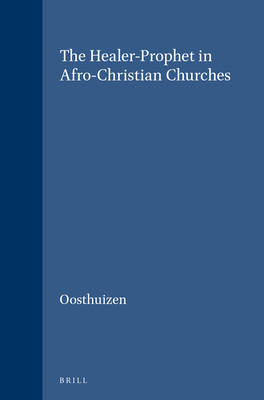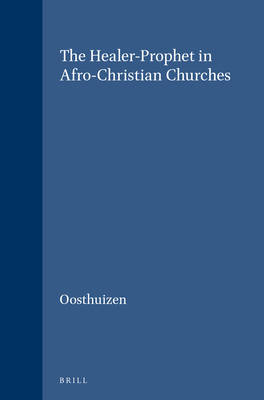
- Afhalen na 1 uur in een winkel met voorraad
- Gratis thuislevering in België vanaf € 30
- Ruim aanbod met 7 miljoen producten
- Afhalen na 1 uur in een winkel met voorraad
- Gratis thuislevering in België vanaf € 30
- Ruim aanbod met 7 miljoen producten
Zoeken
Omschrijving
Apart from the mainline, Pentecostal, and Zionist churches, there are different types of African Independent/Indigenous Churches (AIC). The greater part of the more than four thousand denominations and eight million adherents came into the AIC during the past three decades, mainly from the traditional African religious background.
The important role of the diviner in the traditional society has been replaced by the prophet in the AIC; the prophet understands the worldview of his/her people, especially the cultural diseases. In some churches the office of prophet cum diviner is represented by one person.
The AIC movement is the most dynamic church movement in many parts of Africa, especially Southern Africa. The consistent growth of these churches can largely be accounted for by the healing procedures they use, which ar highlighted in this study.
Dr. Oosthuizen approaches healing from various angles, as sickness is not only determined by physical and psychological factors, but also by disturbed human relationships and socio-political and economic tensions.
The important role of the diviner in the traditional society has been replaced by the prophet in the AIC; the prophet understands the worldview of his/her people, especially the cultural diseases. In some churches the office of prophet cum diviner is represented by one person.
The AIC movement is the most dynamic church movement in many parts of Africa, especially Southern Africa. The consistent growth of these churches can largely be accounted for by the healing procedures they use, which ar highlighted in this study.
Dr. Oosthuizen approaches healing from various angles, as sickness is not only determined by physical and psychological factors, but also by disturbed human relationships and socio-political and economic tensions.
Specificaties
Betrokkenen
- Auteur(s):
- Uitgeverij:
Inhoud
- Aantal bladzijden:
- 232
- Taal:
- Engels
- Reeks:
- Reeksnummer:
- nr. 3
Eigenschappen
- Productcode (EAN):
- 9789004094680
- Verschijningsdatum:
- 1/08/1992
- Uitvoering:
- Hardcover
- Formaat:
- Genaaid
- Afmetingen:
- 164 mm x 249 mm
- Gewicht:
- 557 g

Alleen bij Standaard Boekhandel
+ 534 punten op je klantenkaart van Standaard Boekhandel
Beoordelingen
We publiceren alleen reviews die voldoen aan de voorwaarden voor reviews. Bekijk onze voorwaarden voor reviews.








